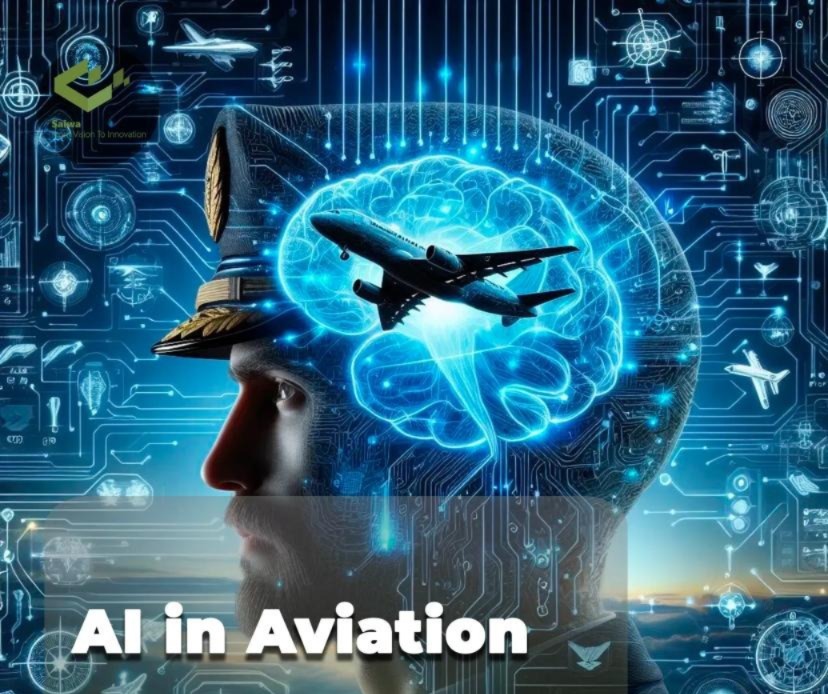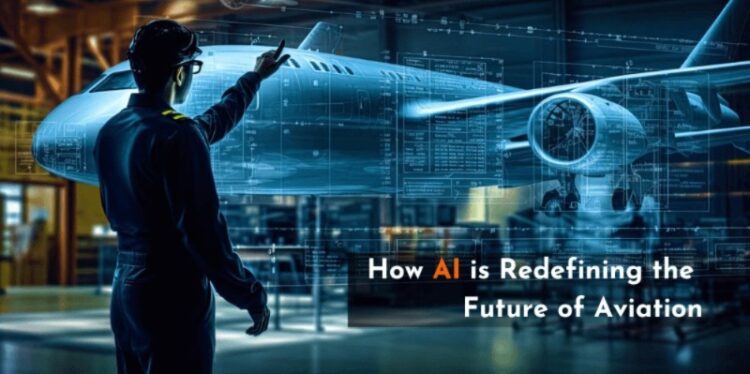ARTIFICIAL INTELLIGENCE IN AVIATION INDUSTRY
October 04,2025

Information technology has transformed aviation and airline activities since the 1980s. From Reservation Departure Control systems, Materials Management, Flight control systems, revamping the HR system with ERP( Enterprise Resource Planning ) and SAP (Systems, Application and Products). Every sphere of activity in aviation and the airline industry is heavily dependent on Information Technology and its advancements.
The following are some of the recent developments in the airline industry with AI.
 AI brings powerful capabilities to the aviation ecosystem
AI brings powerful capabilities to the aviation ecosystem Predictive maintenance reduces aircraft downtime and prevents in-flight failures.
Predictive maintenance reduces aircraft downtime and prevents in-flight failures. Smart scheduling optimizes crew assignments and flight paths.
Smart scheduling optimizes crew assignments and flight paths. Dynamic pricing adjusts fares based on demand, competition, and passenger behavior.
Dynamic pricing adjusts fares based on demand, competition, and passenger behavior. Personalized services offer tailored recommendations for meals, seats, and entertainment.
Personalized services offer tailored recommendations for meals, seats, and entertainment. Chatbots and virtual assistants handle bookings, cancellations, and FAQs with 24/7 efficiency.
Chatbots and virtual assistants handle bookings, cancellations, and FAQs with 24/7 efficiency.

In Indian Airlines, Leading the AI Revolution
🟠 IndiGo
India’s largest airline by market share, IndiGo has invested in AI-driven customer service tools and operational analytics. Their chatbot “Dottie” helps passengers with booking, flight status, and FAQs, reducing call center load and improving response times.
🔵 Air India
Under Tata Group’s leadership, Air India is undergoing a digital transformation. The airline is integrating AI to modernize its fleet management, enhance customer experience, and streamline backend operations. AI is also being used to analyze passenger feedback and improve service quality.
🟣 Vistara
A joint venture between Tata Sons and Singapore Airlines, Vistara uses AI for predictive maintenance and personalized passenger engagement. Their systems analyze travel history and preferences to offer tailored services, from check-in to in-flight entertainment.
🔴 Akasa Air
As a new entrant, Akasa Air is building its tech stack from the ground up. AI is central to its strategy, from route planning to customer support. Their digital-first approach allows for agile adoption of emerging technologies.
🧠 AI in Air Traffic and Safety
Beyond airlines, AI is transforming air traffic management:
Airports Authority of India (AAI) is exploring AI for real-time runway monitoring and congestion prediction.
DGCA is considering AI-based surveillance tools to ensure regulatory compliance and safety audits.
🌱 Sustainability and Efficiency
AI helps Indian carriers reduce fuel consumption and emissions:
Flight path optimization minimizes unnecessary detours.
Load forecasting ensures efficient cargo and baggage handling.
Energy management systems at airports use AI to reduce power usage and carbon footprint.
🚀 The Road Ahead
India is expected to become the third-largest aviation market by 2026. With rising passenger numbers and expanding fleets, AI will be critical in:
Managing operational complexity
Enhancing passenger satisfaction
Meeting sustainability goals
Investments in AI will not only improve profitability but also position Indian airlines as global leaders in smart aviation.
✈️ Final Thoughts
Artificial Intelligence is redefining how Indian airlines fly, serve, and grow. As technology evolves, passengers can expect smoother journeys, smarter services, and safer skies. The future of Indian aviation is not just airborne—it’s intelligent.